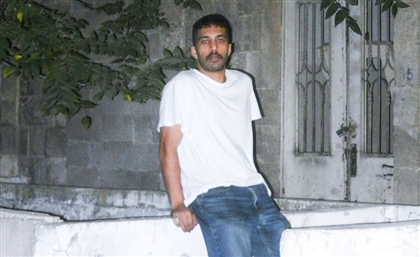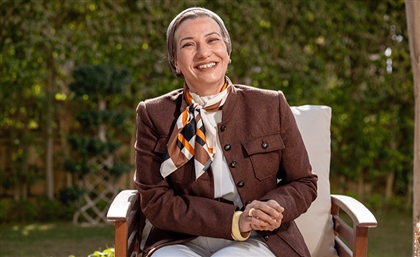How Egyptian Rock Band Les Petit Chats Gave Rise to Arab Music Icons
Once Cairo’s hottest cover band, Egyptian 60s rock band Les Petits Chats left behind a legacy that shaped Arab music.
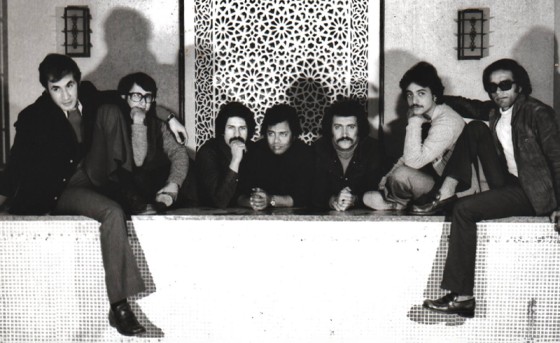
In the golden age of Egyptian music, when every household was filled with the timeless voices of Umm Kulthum, Mohammed Abdelwahab, Sheikh Imam and Abdel Halim Hafez, a romantic era was unfolding. While Egypt’s cultural giants shaped the nation’s artistic identity, a quieter, but equally significant, cultural shift was brewing. Inspired by the soaring popularity of Egyptian art, the youth grabbed their instruments, experimented with new sounds, and began to form their own bands. Among them, a little band with big dreams Les Petits Chats emerged.
Formed in 1967, Les Petits Chats was led by musical prodigy Wagdi Francis, who had been singing in choirs since his days at Jesuits College. He also joined the church choir, where he became their youngest solo singer. Fellow music enthusiast Ezzat Abou Aouf used to perform alongside Wagdi in 1964 on a boat called ‘Isis’, operated by the Hilton. What started as a running joke between Wagdi and Ezzat where Ezzat always told him, “Hey, why don’t we start a band?” turned out to be no joke at all. With Wagdi on bass and vocals, Ezzat on the keyboard, guitarists Freddy (Farid) Rizk and Beirge Andreassian, and later drummer Omar Khairat, Les Petits Chats was born in May 1967.
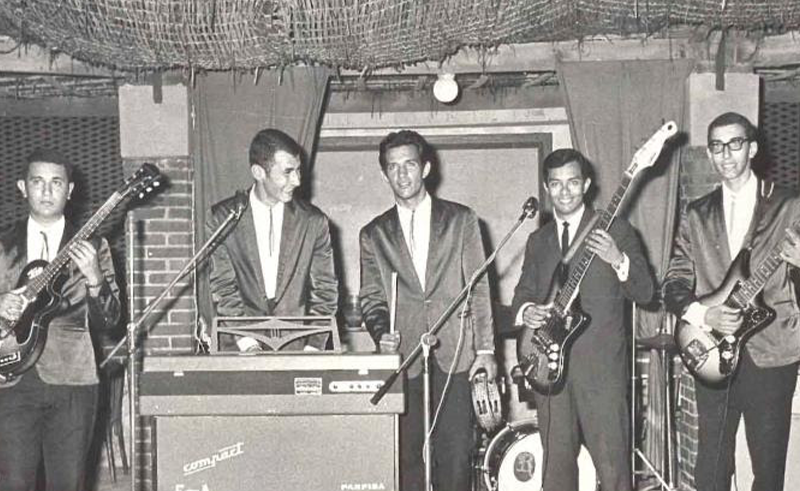
Just as they were gearing up to perform after rehearsals, the 1967 war broke out. With a nation in mourning, the music scene all but shut down. Two days after the war, El Petits Chats loaded a bus with their equipment and drove to Alexandria. They managed to book a gig at a nightclub called Casino Miami, but the place was as empty as the nation’s spirits. Even though the war had left people feeling down, the band’s love for music had not wavered.
Later that same summer, they scored a deal to play at Agami Palace, and the crowds slowly started to return. By the end of the season, Les Petits Chats was a name people began to remember. They also landed a weekly spot on the Omar El Khayam boat, playing to sold-out audiences every Sunday and Friday along the Nile.
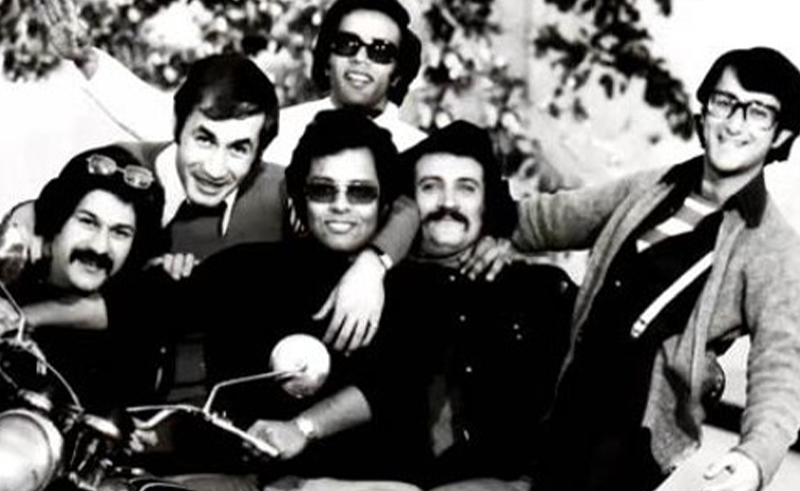
In an era where bands often flamed out quickly, typically disbanding within five to seven years, Les Petits Chats defied the odds, captivating Egyptian audiences for nearly two decades. Despite not recording any albums or having professional management for most of their years of fame, they built a dedicated fan base through electrifying live performances. Their repertoire spanned a wide range of Western music, including Italian classics like 'O Sole Mio' by Enrico Caruso, French hits like 'La Femme de Mon Ami' by Enrico Macias, Spanish tunes like ‘Cuéntame’ by Formula V, and English songs like 'Sway' by Bobby Rydell. They rivalled other groups like The Black Coats, a band featuring the son of famed Egyptian writer Tawfiq al-Hakim. Soon, Les Petits Chats was making waves beyond Egypt’s borders, touring in Syria and Lebanon, where they garnered a cult-like following.
“You know, now I'm an actor and supposedly a star, president of the Cairo International Film Festival, and I co-present one of the biggest talk shows in Egypt,” said Ezzat Abou Aouf in the ‘Les Petits Chats’ documentary by Sherif Nakhla. “And yet, all of this is nothing compared to the stardom of Les Petits Chats.”
By 1970, the band was at the height of its fame. They wanted to get even more professional, so they added Taymour Kouta on bass, allowing Wagdi to focus on vocals. Around that time, 19-year-old Ezzat had to leave the band to dedicate more time to his studies at medical school. George Lukas and Hany Shenouda stepped in to keep the show going. Later, Ezzat Abou Aouf started forming his own band called The Cats, which saw short-lived success.
In 1971, Les Petits Chats faced a huge challenge when they were invited to perform in Beirut, Lebanon, to substitute for an Italian band that had played at the same venue for five consecutive years and had a large fan base. It was a big step for Les Petits Chats to perform in place of giants, but they surprised everyone and earned the love of Lebanon, staying longer than planned.
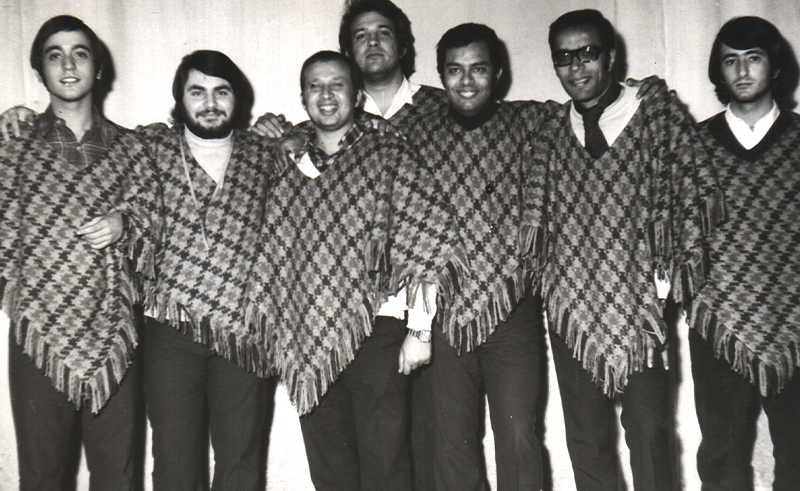
In 1973, the 6th of October War broke out. With Egypt once again steeped in conflict, Les Petits Chats didn’t get gigs and paused performing for a while. This gave them the opportunity to rehearse, as singer Talaat Zein joined the band. Ezzat Abou Aouf reunited with Les Petits Chats, and they began doing intense rehearsals from 11 AM to 11 PM every day.
The band returned after the war with an overwhelming comeback, reshaping Les Petits Chats for the third time, with shows at the Palestine Hotel and Merryland every Friday and Sunday in Alexandria. They even hosted beauty pageants, where the prize wasn’t a tiara but a joyride with Sadek Gellini in his convertible Mercedes across Alexandria.
As the 1980s rolled in, the band members started drifting toward their own paths to pursue individual goals. By that time, Sadek Gellini had left the band to work in opera, while Omar Khairat left to travel to London to focus on his compositions. Ezzat Abou Aouf left the band to start The 4M with his sisters, inspired by Les Petits Chats, while Hany Shenouda started his own pioneering pop band, El Masryeen. Pino left and started working with then-rising pop star Amr Diab, making cassette tapes.
By the end of the 1980s, the glory days of Les Petits Chats seemed to be behind them. But Wagdi wasn’t ready to call it quits. He continued to play, keeping the spirit of the band alive in whatever form he could. Even in 2009, when their reunion concert was cancelled after a tragic train accident, the band pressed on, rescheduling later that year. In May 2010, Les Petits Chats returned one last time, performing at the Palm Hills Resort and giving their now middle-aged fans a dose of sweet nostalgia.
Although Les Petits Chats may no longer be rocking stages every week, their influence on Arab music endures, as they helped to create the fleeting rock movement that took place at the time. Members went on to form other bands, such as Tiba, 4M, and El Masryeen. Their legacy lives on, not only in the music they played but in the bands they inspired, the dreams they stirred, and the memories they made.
- Previous Article Saudi Producer Warchieff and Sudanese Rapper Hyper Team Up on “Asfar”
- Next Article The Festive Chic Holiday Edit







